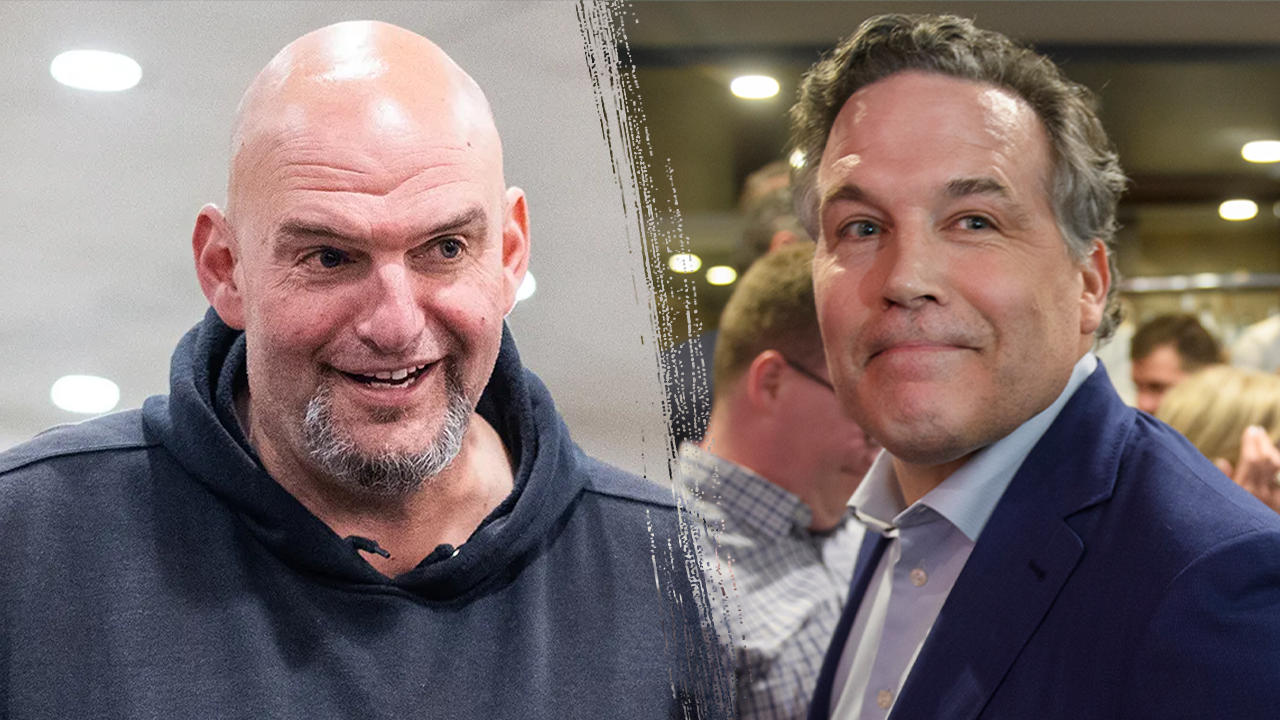
In an era where political polarization often appears insurmountable, two unlikely senators have provided a glimmer of hope for bipartisanship in Washington.
Pennsylvania Senators Dave McCormick (R) and John Fetterman (D) have crossed party lines to advocate for an end to the ongoing government shutdown, showcasing that collaboration between members of different parties is still possible, even amidst a climate of intense division.
The collaboration, which featured a video released by both senators, directly addressed the growing impact of the government shutdown on the American public, particularly on working-class individuals and federal employees.
The video, which highlighted the personal commitment of both senators to end the shutdown, was an emotional plea to their colleagues in the Senate.
“We’re in different parties, but we both agree that we need to end this shutdown,” Fetterman said in the video. “The people of Pennsylvania, and the people of this country, are being hurt every day it continues. It’s not just about politics; it’s about people’s livelihoods.”
McCormick echoed these sentiments, emphasizing the human cost of the shutdown. “23 days, 12 votes,” he said. “Senator Fetterman and I have both voted to open up the government. We agree on that 100%. It’s really starting to hurt Pennsylvania. People are beginning to feel it in their daily lives.”
As the shutdown stretches into its third week, the strain on everyday Americans is becoming more pronounced. Among the hardest-hit are federal workers, including air traffic controllers, TSA agents, and border patrol officers.
These workers, who are essential to the safety and security of the nation, are forced to work without pay, contributing to the growing frustration over the prolonged impasse in Washington.

Additionally, resources allocated for the Supplemental Nutrition Assistance Program (SNAP), which provides vital food assistance to millions of low-income families, are beginning to dwindle. For many, the safety net they rely on is starting to fray, leaving vulnerable Americans in an increasingly precarious position.
By addressing these realities, both McCormick and Fetterman are stepping outside their partisan corners to put the interests of their constituents first. The message they are sending is clear: the shutdown is hurting people, and it's time for the Senate to come together and put an end to it.
The bipartisan effort is particularly notable given the political climate in Washington, where cooperation between Republicans and Democrats has become rare, especially on key issues like the government shutdown.
Historically, government shutdowns are contentious, with each party blaming the other for failing to pass a budget or funding bills. This latest shutdown, which began over disagreements regarding border security and healthcare for undocumented immigrants, has become yet another point of division.
Despite these differences, McCormick and Fetterman are showing that it is possible to find common ground, even on issues where there is significant ideological disagreement.
One of the most contentious issues between Republicans and Democrats in the current shutdown debate is the provision of healthcare for undocumented immigrants.
President Donald Trump has made it clear that he will not compromise on this issue, and Republicans have insisted that any deal to reopen the government must include measures to prevent taxpayer money from funding healthcare for illegal aliens.
Democrats, on the other hand, have opposed such restrictions, arguing that healthcare access should be a fundamental right for all individuals, regardless of immigration status.

This ideological divide is one of the key factors holding up a resolution to the shutdown. However, McCormick and Fetterman’s call for bipartisanship highlights the potential for compromise, even on this issue.
Both senators have acknowledged that while they may not agree on every detail of the debate, they are united in their belief that the shutdown must end as soon as possible. The message they are sending is that putting people’s needs first is more important than partisan squabbles.
Despite their different political backgrounds, McCormick and Fetterman have been working closely together in recent days to push for a solution that will benefit their constituents and the country as a whole.
The two senators voted together on a measure that would have paid certain federal workers during the shutdown, but unfortunately, the measure did not pass in the Senate.
However, their joint efforts to support federal employees and reopen the government have not gone unnoticed, with many political analysts hopeful that their example will inspire other lawmakers to work across party lines.
Republicans and Democrats alike have expressed their admiration for McCormick and Fetterman’s ability to put aside their differences for the greater good.
For many, their bipartisan approach to the shutdown is a refreshing change from the usual political gridlock in Washington. It’s a reminder that, despite the deep divides in American politics, there are still opportunities for collaboration when elected officials prioritize the needs of the American people.
The hope is that the actions of McCormick and Fetterman will inspire others in the Senate to follow suit and work together to bring an end to the shutdown.

With the government shutdown threatening to extend into a fourth week and the stakes growing higher by the day, time is running out for lawmakers to reach a resolution. The longer the shutdown continues, the greater the strain on federal workers, the economy, and the American people.
Both McCormick and Fetterman have made it clear that the status quo is unacceptable. The shutdown is already costing American taxpayers billions of dollars, and the economic impact is being felt across the country.
It’s not just federal workers who are suffering — businesses, families, and communities are all feeling the ripple effects of the government’s inability to function properly.
The longer the gridlock continues, the more difficult it will be for lawmakers to regain the trust of the American public and address the underlying issues that led to the shutdown in the first place.
The bipartisan video from McCormick and Fetterman is a step in the right direction, but the real work lies ahead. Both senators are urging their colleagues to put aside partisan differences and work together to reopen the government.
If they can find a way to resolve the current impasse, it could serve as a model for future cooperation in Washington, where bipartisanship has become increasingly rare.
The ongoing government shutdown has revealed the deep divisions in American politics, but it has also shown that bipartisan cooperation is still possible.
While there are many areas of disagreement, McCormick and Fetterman’s willingness to work together for the common good offers hope that, despite the partisan rancor, the government can still function when lawmakers are willing to compromise and put the needs of their constituents above their own political interests.

The ultimate question remains: will the efforts of McCormick and Fetterman be enough to break the gridlock and end the shutdown? Only time will tell, but their example serves as a powerful reminder that, even in the most polarized of times, there is always room for cooperation, understanding, and compromise.



